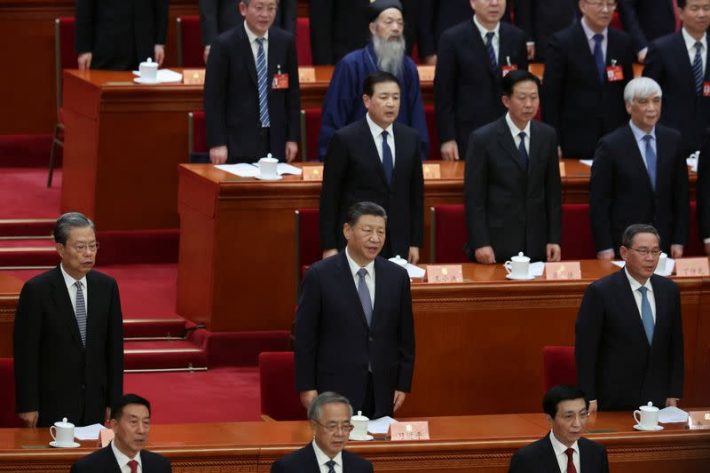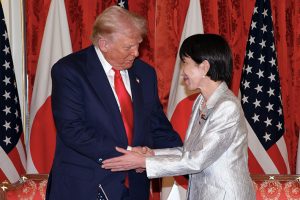The central committee of China’s Communist Party will stage a key economic summit known as a plenum in July.
The meeting, the third plenum since the body of top decision makers was elected in October 2022, will focus on reforms amid “challenges” at home and complexities broad.
Plenums are important events on China’s political calendar that require the attendance of all of the party’s central committee, comprising 205 members and 171 alternate members with President Xi Jinping at the helm.
ALSO SEE: China’s Factory, Services Activity Cools in April Amid Slowdown
Further deepening reforms and promoting the modernisation of China will comprise the main agenda of the third plenum, state-run Xinhua news agency reported on Tuesday, citing the party’s elite political bureau, or politburo, during a regular meeting.
‘Uncertainty in the external environment’
Third plenums have been typically held in the autumn since the 1990s. The party was widely expected to hold one in either October or November 2023, but it did not.
The upcoming third plenum will open amid a subdued economy, with the massively indebted property sector, once accounting for a quarter of gross domestic product, a major drag on household sentiment.
The economy still faces many challenges, with “effective demand” still lacking, the pressure on enterprises sizable, and risks and hazards in key areas numerous, Xinhua reported, citing the politburo meeting.
“Domestic circulation is also not smooth, and the complexity, severity and uncertainty of the external environment has obviously increased,” Xinhua reported, adding China’s economic foundation remained stable.
‘China collapse theory’
China has not collapsed as predicted by the “China collapse theory,” nor will it peak as forecast by the “China peak theory,” Xi said in March.
“I have repeatedly emphasised that reform and opening up are crucial tools for contemporary China to catch up with the times. China’s reform will not pause, and its opening-up will not cease,” he said.
“We are planning and implementing a series of significant measures to comprehensively deepen reform.”
Third plenums have typically focused on reforms, after the end of the Cultural Revolution in the late 1970s. Some closed-door meetings have left a long-lasting and historical impact on the economy.
The third plenum in December 1978 under Deng Xiaoping initiated China’s economic reforms, igniting the transformation of the world’s most populous nation from a centrally planned backwater to a global economic powerhouse.
In November 2013 the central committee at a third plenum vowed to let markets play a “decisive” role in allocating resources in the economy.
While a third plenum in February 2018, held atypically early that year, urged the party to “unite closely” around the central committee with Xi at the “core”, and proposed the removal of a constitutional clause limiting presidential service to two terms.
Days later, China’s largely rubber-stamp parliament voted to remove presidential term limits, allowing Xi to stay in office indefinitely.
- Reuters with additional editing by Jim Pollard
ALSO SEE:
China Warns US Not to Implement Taiwan Aid, TikTok Sale
Trade War Heating Up: China Hits Back After Biden Boosts Tariffs
NATO Warns China: Good Ties at Risk, if You Keep Backing Russia
ASML Will Not Service Some China Equipment, Outgoing CEO Hints
US ‘Pressured’ Mexico to Reel Back China EV-Maker Incentives
























